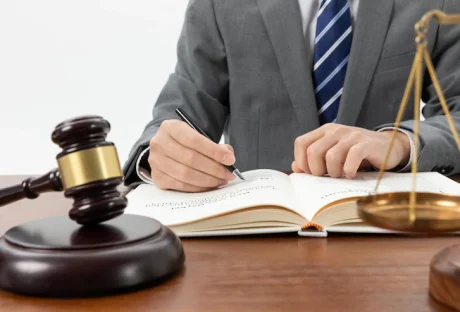If you are injured in an accident – car accident, workplace accident, assault, or medical malpractice – you likely have many questions. That is perfectly natural and understandable. The best way to get answers is to contact a personal injury lawyer who can help you based on the details of your situation.
In the meantime, we offer some answers to the most frequently asked questions about personal injury cases. We hope you will gain some insight to help you begin the process of filing a personal injury claim and getting the compensation that you deserve.
Frequently Asked Questions about Personal Injury Cases
Q: What is a personal injury?
A personal injury occurs when someone’s negligent or reckless behavior causes harm to someone else. Some examples of personal injury cases include:
- Car accidents
- Medical malpractice
- Slip and fall accidents
- Product liability
- Workplace injuries
- Birth injuries
- Wrongful death
You need to understand that if you are fighting a personal injury case of a specific nature, it is always best that you get experts that have experience in that field. In other words, you should look to work with and hire specialists rather than generalists. To understand this better click on more info.
Q: How do I know if I have a case?
The only way to find out if you have an actionable personal injury case is to speak with an attorney. A personal injury attorney will evaluate the details of your situation and let you know if you have a case, and if so, how to proceed.
Q: How much is my case worth?
The “value” of your claim, or how much your case is worth, depends on a variety of factors. These factors include:
- The circumstances surrounding the accident
- The severity of your injuries
- Limits on insurance coverage
- Medical expenses
- Estimated future medical expenses
- Lost wages or earning capacity
- Pain and suffering
- Loss of consortium
Once these factors are taken into consideration, you can obtain an estimate of your case’s value. Remember that an estimate is not a guarantee.
Q: What types of compensation can I get through a personal injury claim?
Plaintiffs (the person filing a personal injury claim) may be able to obtain several different types of compensation, depending on their case. Most often, personal injury claims seek compensation for:
- Current medical bills
- Anticipated future medical bills
- Loss of income
- Pain and suffering
- Mental anguish
- Loss of consortium
- Punitive damages
These are somewhat broad examples of the types of damages that you may be able to pursue in a personal injury claim. The types of damages relative to your case will depend on the facts of your case.
Q: Do I need an attorney to file a personal injury claim?
Legally speaking, you do not have to hire an attorney to help you file a lawsuit. However, it is highly recommended. A personal injury attorney can benefit your case in a lot of ways. For example, these attorneys know how the system works and what all needs to happen in order for you to obtain a settlement or verdict. Also, if legal snags hold up your case in the court system, an attorney can help sort things out and get your case moving again.
Another benefit of working with an attorney is that attorneys are skilled negotiators. If the other party (defendant) offers you a settlement that is low or unreasonable, an attorney can negotiate on your behalf to ensure that you get maximum compensation.
Read Also:
- Can an Employee Claim for a Personal Injury When Working From Home?
- Hagen Rosskopf Explain What to Look for in a Personal Injury Attorney
- How to Find a Personal Injury Attorney On Any Budget
- Reasons for hiring any Personal Injury Attorney is Important























